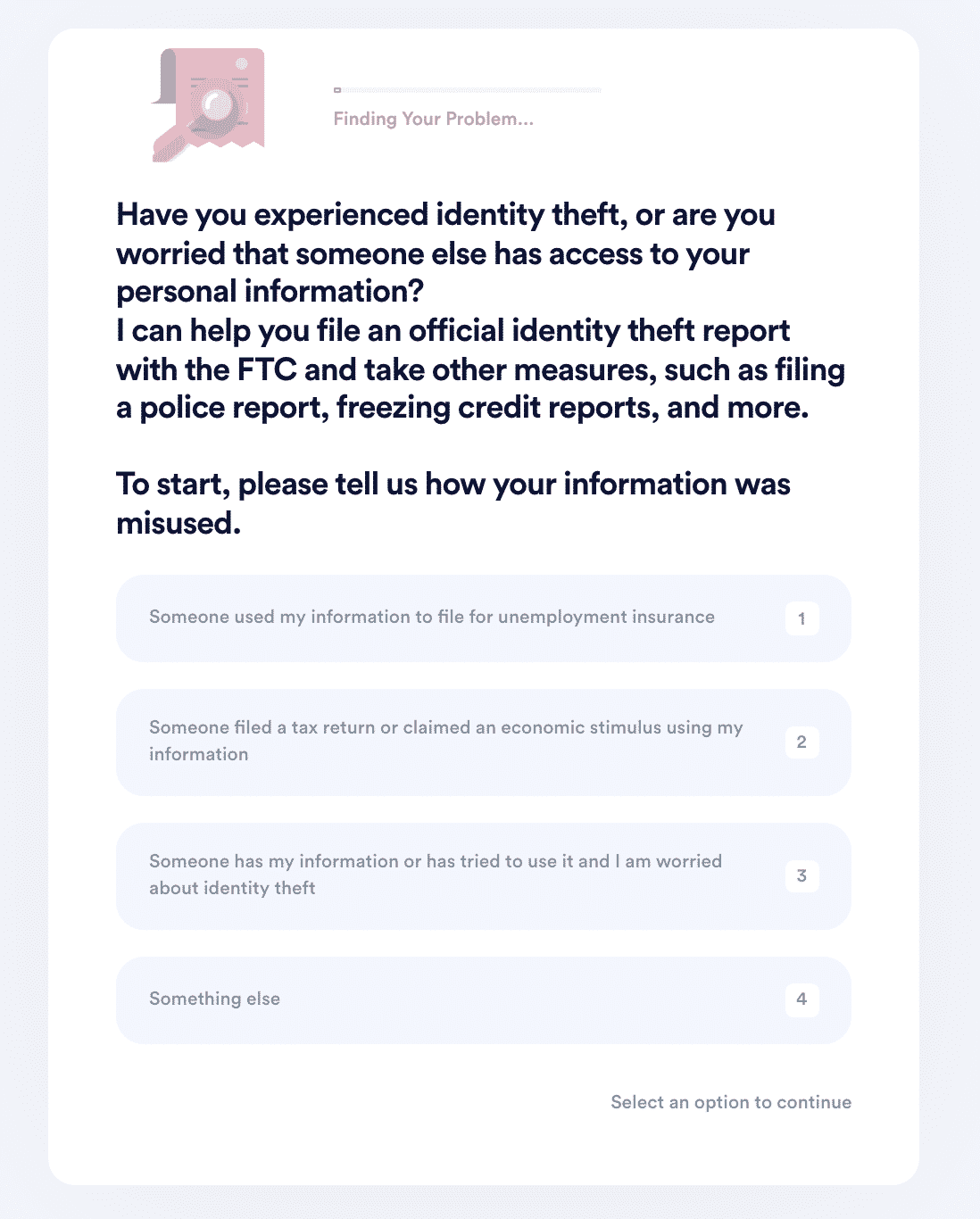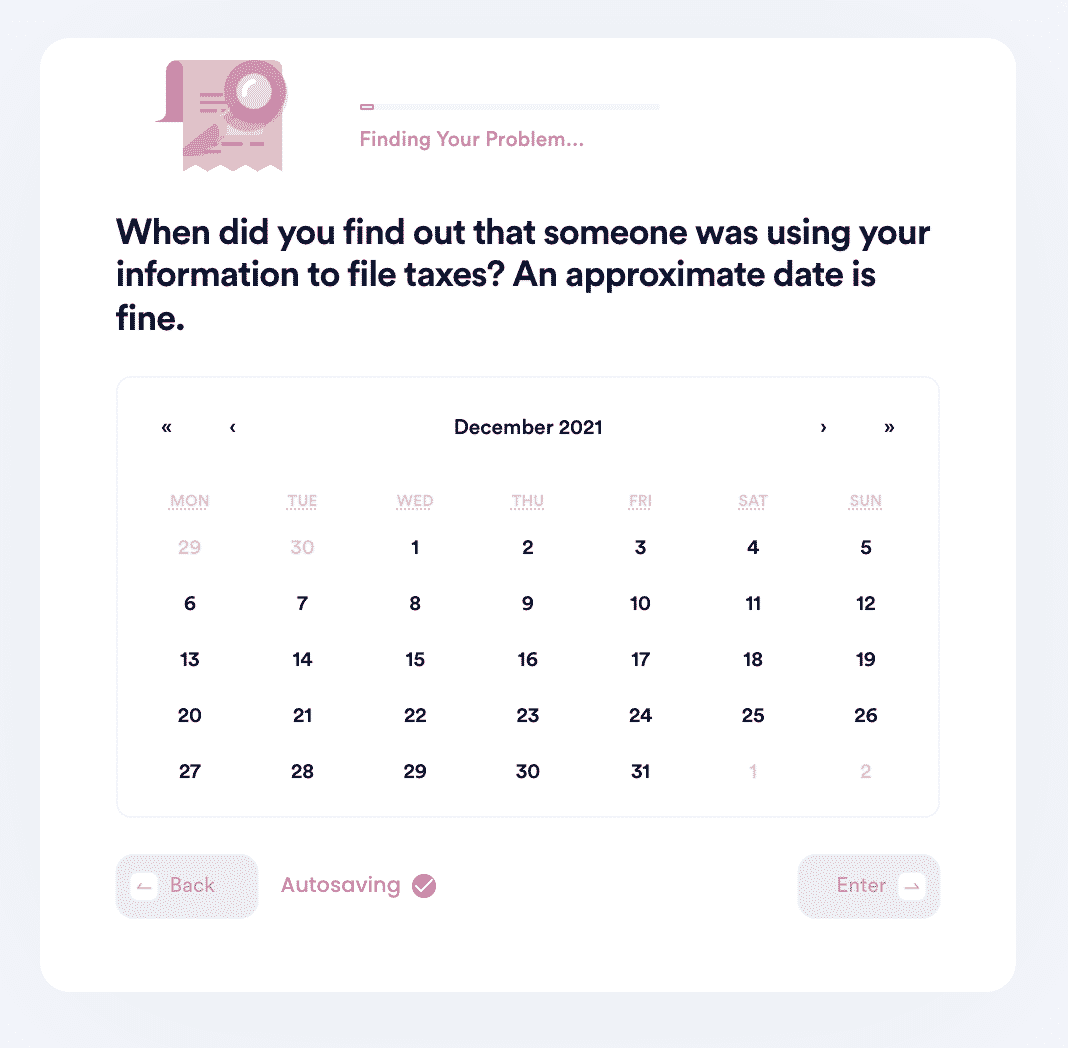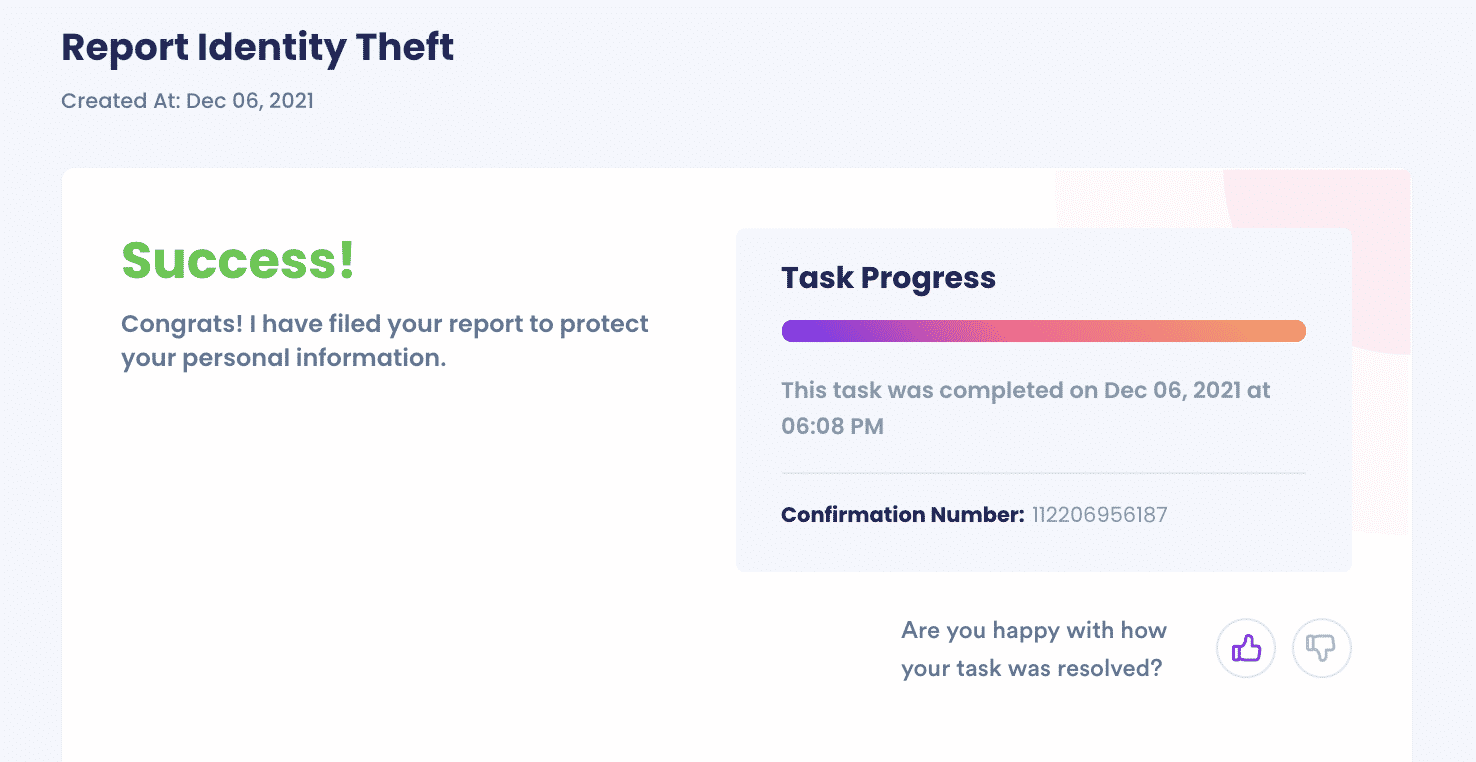How to Get an IRS Identity Theft Protection PIN
is a serious violation of your personal and financial life. When someone steals your social security number, driver's license, or other personally identifiable information to commit fraud in your name, it can have devastating effects. Whether they opened credit cards in your name, filed for unemployment in your name, stole your stimulus check, or filed a tax return in your name, identity theft can be stressful and overwhelming. If you think you may need an , DoNotPay can help you through the process.
What Is an IRS Personal Identification Number (Pin) And Why Is It Important?
smartphone, you know that a Personal Identification Number (PIN) is a series of digits, usually chosen by you, that you enter to prove you are the owner or have the authorization to use the card or device.
| Why does the IRS issue PINs? | With the Internal Revenue Service (IRS), an is an Identity Protection PIN. It is a 6-digit number that eligible taxpayers can be assigned to confirm their identity when filing returns during the current calendar year. It helps prevent their Social Security number (SSN) from being used to file fraudulent tax returns. A new IP PIN is generated each year. |
| Are You Eligible for a PIN? | According to the IRS, if you are a victim of tax-related identity theft and your tax account issues are resolved, you will receive a CP01A Notice each year with your new IP PIN. You may also request an IP PIN as a proactive measure to protect yourself from tax-related identity theft fraud. You will need to pass an identity verification process before an IP PIN is issued. |
How to Request an IP Pin From the IRS
There are a few ways that you can request an IP PIN for identity theft protection.
- Online - In your IRS.gov account, you can use the Get an IP PIN tool. If you don't have an online account, you must register and validate your identity first. This is the quickest method.
- Paper Application - You can go to Get an Identity Protection PIN and choose the option that says File an Application for an IP PIN. When the box expands, click the link for the PDF form. When the form opens, read it carefully and follow all instructions, fill the form out accurately and mail it to the correct address.
- In Person Verification- Make an appointment at your local Taxpayer Assistance Center, and take the required identification.
Signs of Identity Theft and Tax Fraud
There are many signs of identity theft, but when it comes to tax fraud, you may not even realize you are a victim of identity theft until you are contacted by the IRS about possible issues.
- You are unable to e-file because of a duplicate Social Security number
- You receive letters from the IRS about suspicious tax returns or tax transcripts that you didn't request
- You get notifications about your online account that are suspicious
- You get a notification from the IRS saying you owe additional money, collection actions against you, etc. that you believe are inaccurate
- You did not request an Employer Identification number but are assigned one
- Your IRS records do not accurately reflect your received wages and income.
How to Report Tax Fraud and Identity Theft on Your Own
Identity theft is considered a federal crime, and depending on your state, could be a misdemeanor or felony. You need to report it to multiple agencies and will have a lot of reports to file. Some of the first steps you will need to take:
- Consult with the IRS regarding the fraud. They will tell you what steps to take for tax-related purposes.
- Report identity theft to any police or sheriff's department that has jurisdiction in your case.
- Report the identity theft to the Federal Trade Commission.
- Contact your banks and financial institutions to make sure your accounts have not been compromised.
- Review your credit reports. If you see suspicious accounts, begin contacting each institution to investigate.
- Notify each credit bureau of identity theft. They can place a freeze on your credit reports.
- Notify the Social Security Administration.
- Consult a lawyer if you are struggling with the process or agencies or banks are being uncooperative.
- Keep copies of all reports and correspondence, and detailed records of every communication with each agency and institution.
Let DoNotPay Help You With All of Your Identity Theft Issues
Making sure you file all of the correct reports, contact the correct agencies, and handle tax fraud correctly can be overwhelming. The number of reports can be time-consuming to fill out, especially if you have a family, job, and other responsibilities vying for your limited time. Lawyers can be expensive. DoNotPay has an alternative solution to help you with identity theft.
How to deal with identity theft using DoNotPay:
- Search "identity theft" on DoNotPay and select the type of incident you would like to report.

- Tell us more about the incident that occurred, including the location, date, time, financial loss, and any suspect information you may have.

- We'll identify whether you should file an FTC report, contact the IRS, freeze your credit report, contact state agencies, or file a police report. Once we guide you through the best options, we'll automatically submit the reports on your behalf!

And that's it! DoNotPay will make sure your issue gets sent to the right place. We'll upload confirmation documents to your task for you to view, and if the contacts need more information, they will reach out to you personally via email or mail.
Why Should You Use DoNotPay?
DoNotPay understands that when dealing with identity theft, it is important to act quickly. If your time is limited, let us help. Our Identity Theft service will quickly and successfully help you cover all issues related to identity theft.
Not only can we notify the IRS if someone has filed for unemployment in your name or stole your stimulus check, but we can notify the Social Security Administration of the fraudulent use of your SSN. We can file fraud reports with credit bureaus and help you file reports for credit card fraud. We can even help you send demand letters to for identity theft compensation in Small Claims Court using our Send Demand Letters To Now service.
What Else Can DoNotPay do?
DoNotPay has a variety of services that help you solve problems, save money and resolve issues. Examples include:
- Contact Government Representatives
- Compensation for Victims of Crime
- Chargebacks and Refunds
- Insurance Claims


